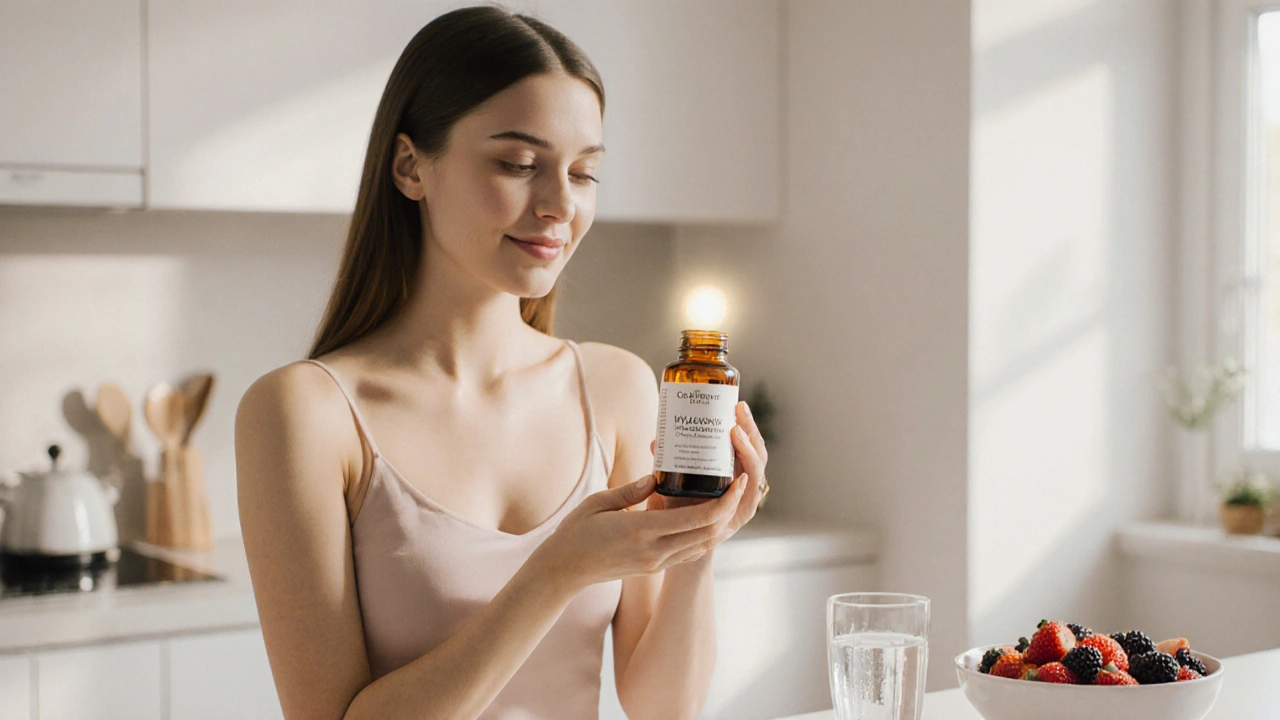Hyaluronic Acid Supplements – What They Are and Why You Might Want One
If you’ve heard about hyaluronic acid (HA) in skin creams, you might wonder why there’s a pill version. HA is a natural molecule that holds water like a sponge, keeping joints, eyes, and skin hydrated. Taking it as a supplement can boost that hydration from the inside out, especially if you’re dealing with dry skin, joint stiffness, or want a little extra glow.
Top Benefits and Who Can Use Them
People who take HA supplements often notice smoother skin and less fine‑line visibility within a few weeks. The same water‑binding power helps lubricate joint cartilage, so older adults or anyone with occasional joint aches may feel more comfortable moving around. Athletes sometimes add HA to their routine to aid recovery after intense workouts, because better joint lubrication can reduce friction. If you wear contacts, HA can also support eye moisture, making those dry‑eye days less annoying.
It isn’t just for the elderly or athletes—young adults with busy, stress‑filled lives can benefit too. Stress can drain your body’s natural HA levels, leaving skin dull and joints tight. A modest daily dose can refill those stores and give you a subtle boost in overall comfort.
Choosing the Right Product and Safe Use
When you shop for HA supplements, check the label for a few key details. Look for a product that lists the molecular weight of the HA; lower‑weight forms (under 1,000 kDa) are absorbed more easily, while higher‑weight versions stay in the joints longer. Many reputable brands combine HA with vitamin C, which helps your body make its own HA faster.
Dosage usually ranges from 50 mg to 200 mg per day. Starting with 50 mg is a safe bet; you can bump it up if you don’t see results after a month. Take the capsule with a glass of water and a meal—this helps your gut absorb the molecule better. If you’re on blood thinners or have a history of knee surgery, have a quick chat with your doctor before adding HA to your regimen.
Quality matters more than price. Avoid products that use vague terms like “HA extract” without specifying concentration. Look for third‑party testing symbols or a batch‑number traceability note; those signs mean the manufacturer takes safety seriously. Also, store the bottle in a cool, dry place—heat can break down HA over time.
Side effects are rare, but a few people report mild stomach upset when they take too much at once. If that happens, split the dose into two smaller servings throughout the day. Pregnant or nursing parents should stick to the lower end of the dosage range and ask their healthcare provider for guidance.
In practice, most users start seeing smoother skin texture and less joint stiffness after two to four weeks of consistent use. Keep a quick journal of how you feel—note any changes in skin hydration, joint comfort, or eye dryness. That simple log helps you decide whether the supplement is worth continuing.
Bottom line: hyaluronic acid supplements are a low‑risk way to boost internal moisture, support joint health, and give your skin a little extra bounce. Choose a reputable brand, start with a modest dose, and listen to your body. With the right approach, you’ll likely notice a subtle but real improvement in everyday comfort.
- September 29 2025
- 17 Comments
- Colin Winthrop
Hyaluronic Acid Supplement: Science, Benefits & How It Improves Skin
Discover how hyaluronic acid supplements work, the science behind skin hydration, dosage tips, and how to choose the right product for smoother, youthful skin.
- August 24 2025
- 8 Comments
- Colin Winthrop
Hyaluronic Acid Supplements for Youthful Skin: Evidence, Dosage, and Results (2025 Guide)
Does oral hyaluronic acid make skin look younger? See the science, dosages, results timeline, side effects, and smart stacks for 2025, with NZ-specific tips.
- February 2026 (11)
- January 2026 (29)
- December 2025 (29)
- November 2025 (19)
- October 2025 (30)
- September 2025 (14)
- August 2025 (7)
- July 2025 (26)
Archives
- online pharmacy
- side effects
- generic drugs
- pharmacy guide
- antibiotics
- safe online pharmacy
- drug safety
- drug interactions
- statin side effects
- ED medication
- acne treatment
- antibiotic
- medication interactions
- hyaluronic acid supplement
- skin hydration
- Sildenafil
- alternatives
- weight gain
- allergy treatment
- medication side effects

